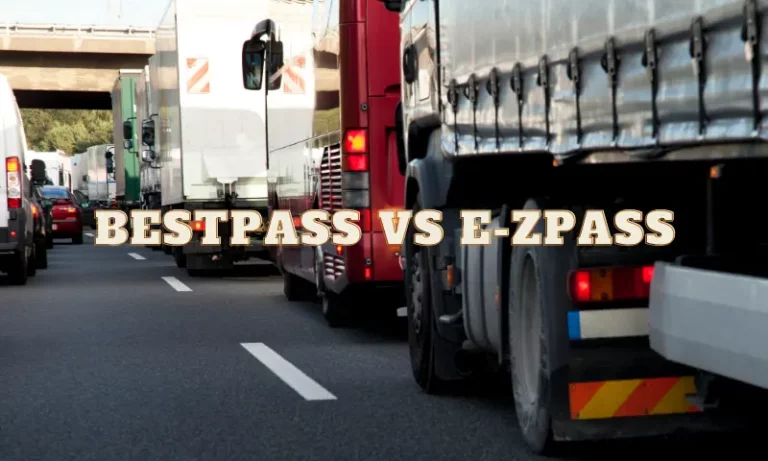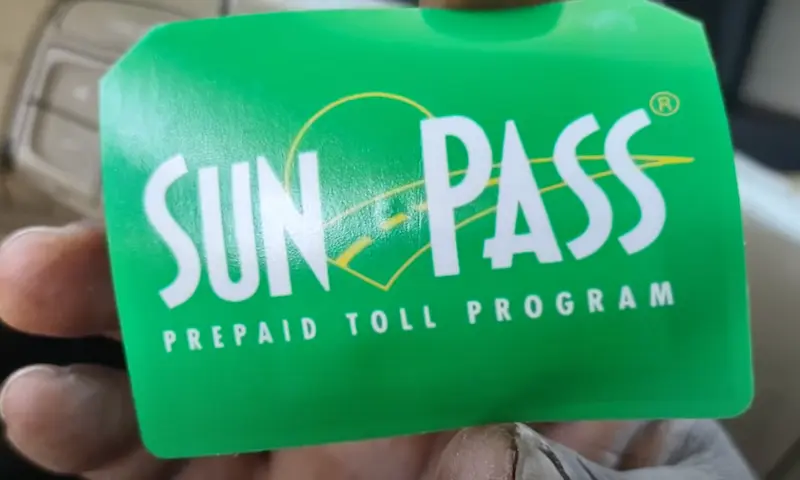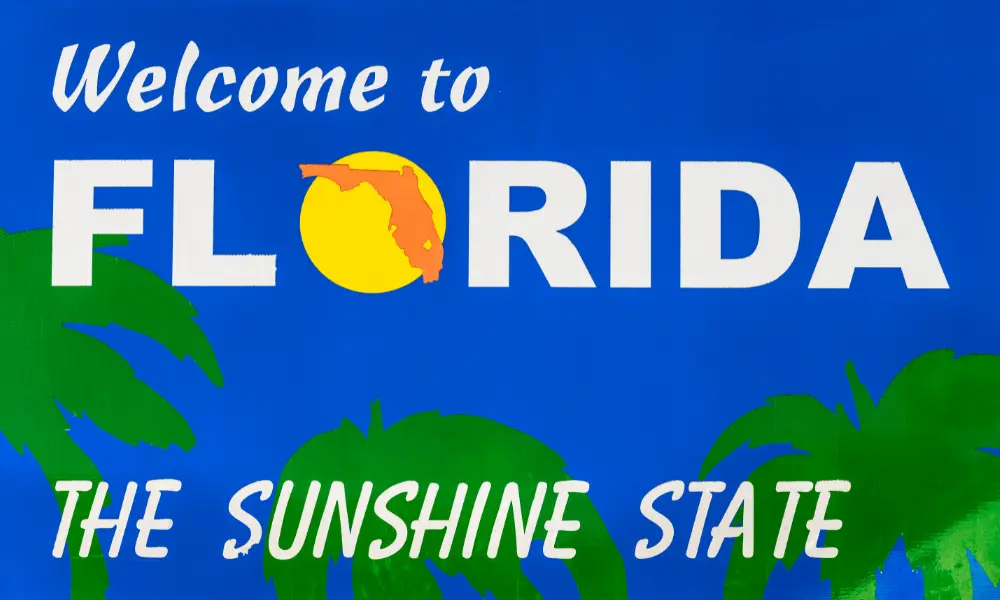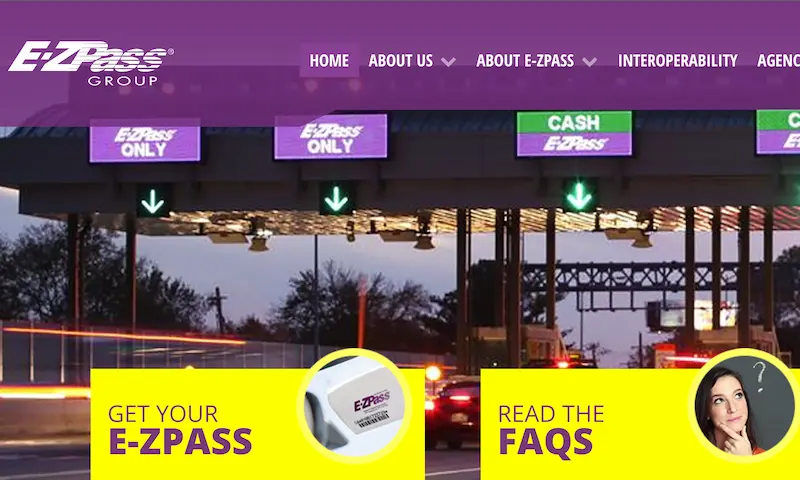Navigating toll roads efficiently is key to saving time and money. With toll management solutions like BestPass and E-ZPass, you can breeze through tolls without stopping. Your transponder, a small electronic device, is central to these services, ensuring your travel is smooth across various toll roads.
Understanding Toll Management Systems
When you’re traveling on toll roads, bridges, or tunnels, having the right toll management system can make your journey smoother and more efficient. Two popular systems you may consider are E-ZPass and BestPass, each with its own unique features and coverage.
E-ZPass Overview
E-ZPass is an electronic toll collection system that allows you to pass through toll plazas without stopping. When you sign up for an E-ZPass, you receive a small electronic device called a transponder, which you attach to your windshield. As you approach a toll plaza, sensors detect your transponder, automatically deduct the toll from your account, and let you drive through without stopping. E-ZPass is widely compatible across multiple states, offering toll coverage in many areas along the East Coast and into the Midwest.
BestPass Overview
BestPass, on the other hand, is designed to cater primarily to commercial fleets. With a BestPass transponder, you enjoy the benefit of consolidated billing for tolls across a wide network, which includes over 50 toll roads, bridges, and tunnels in the United States and Canada. In this case, compatibility extends beyond just the highway tolls, aiming to streamline the toll management process for large-scale transportation operations with frequent tolling needs.
Comparing BestPass and E-ZPass Features
When considering a toll management system, you’ll want to take into account factors such as coverage, costs, discounts, and ease of use. Here’s a straightforward look at how BestPass and E-ZPass stack up in these key areas.
Coverage Areas
BestPass:
- Primarily focuses on commercial fleets.
- Offers coverage in specific networks, mainly in the northeastern and midwestern United States.
E-ZPass:
- Widely accepted in states like New York, Maryland, Pennsylvania, New Jersey, and Ohio.
- Extends to additional regions including West Virginia, Virginia, Indiana, Illinois, and as far south as North Carolina and Georgia.
Cost and Fees Analysis
BestPass:
- Monthly Fee: Varies based on service plans and fleet size.
- Deposit: Not typically required.
- Minimum Balance: Not standard, depends on plan.
E-ZPass:
- Monthly Fee: Often none, but some states may require a small fee.
- Deposit: May require a transponder deposit in some states like Massachusetts and Florida.
- Minimum Balance: Often imposed to maintain auto-replenish functionality.
Discounts Offered
BestPass:
- Provides discounts, but usually tailored to commercial fleets.
- Opportunities for volume-based discounts, depending on usage.
E-ZPass:
- Offers discounts that depend on the state of issuance.
- Examples include discounted rates in New York and Delaware for frequent travelers.
Ease of Use
BestPass:
- Transponders: Designed for commercial use, one transponder generally covers the entire network.
- Account Management: Customized services available for larger fleets.
E-ZPass:
- Transponders: User-friendly, one per vehicle; some areas offer “toll-by-plate.”
- Account Management: Features like auto-replenish are available, making it easy for you to maintain your account without manual balance checks.
BestPass vs E-ZPass for Trucking Companies
When evaluating toll management solutions, trucking companies need to consider the unique demands of their operations. BestPass and E-ZPass offer distinct features catered to the specific needs of the trucking industry.
Toll Management for Truckers
Your choice in a toll solution can have significant implications for daily operations. BestPass is designed with a wider range of features to serve the comprehensive needs of truckers, particularly those operating within large fleets. It streamlines the toll payment process and provides a single invoice for ease of tracking toll expenses. Conversely, E-ZPass simplifies toll payments by allowing vehicles to pass through toll booths without stopping, but it lacks the broader toll management options that BestPass offers.
Carrier-Specific Needs
Each carrier and owner-operator has unique requirements. If your operation spans multiple states or you cross borders frequently, BestPass offers additional services ideal for carriers with diverse toll needs, including in Canada. The platform manages multiple license plates and tolling authorities, ensuring that you’re covered wherever your routes may take you.
Cross-State and Cross-Border Usage
Coverage is crucial, especially when you operate across state lines or internationally. BestPass provides extensive coverage in the United States and parts of Canada, accommodating trucking companies that frequently travel these routes. E-ZPass has an extensive network as well, but it’s limited mainly to the Eastern and Midwestern parts of the U.S. For a detailed E-ZPass toll coverage map with Bestpass, check out E-ZPass Toll Coverage with Bestpass.
By considering these subsections, you can better gauge which toll solution aligns with your company’s trucking operations.
Technology and Integration
When choosing between Bestpass and E-ZPass, you should consider how each system leverages technology to ease your travel. Let’s explore the devices and integration features that help you pass toll booths with ease.
Transponder Technology
Transponder devices are central to electronic toll collection. Your transponder is typically attached to your windshield, and it communicates with sensors at toll booths. Bestpass offers a universal transponder that works across various tolling networks, making it convenient if you’re covering multiple regions. On the other hand, the E-ZPass system provides transponders compatible with toll roads in multiple states, which might be ideal for your routine travels.
License Plate Recognition
Both systems use license plate recognition technology. If your transponder fails to communicate, cameras capture your license plate so that the tolling authorities can bill you accordingly. This ensures you are still accountable for tolls even if the transponder malfunctions or is not present.
Interoperability Across States
The scope of your travel often determines which service is more advantageous. E-ZPass boasts broad compatibility across numerous states, making it a robust option if you frequently travel within the E-ZPass network. Bestpass, while it may have a more limited range, still provides E-ZPass toll coverage in various key regions, potentially making it a smart pick for specific itineraries. It’s worth checking where each service is accepted before making your decision.
Problem-Solving and Troubleshooting
Tackling challenges with toll pass systems and understanding how to handle toll-related concerns efficiently can save you time and prevent unnecessary stress.
Common Issues With Toll Pass Systems
Problems with toll passes, such as E-ZPass or Bestpass, often include malfunctioning transponders or incorrect toll charges. If you’re driving and notice your transponder isn’t working, it’s essential to address it promptly. To troubleshoot, first ensure that your transponder is properly mounted and has a clear line of sight to the toll reader. If the issue persists, reach out to the Bestpass customer service team by phone for assistance.
Resolving Discrepancies
When you encounter discrepancies on your bill, such as incorrect charges or missed tolls, it’s crucial to act quickly. Contacting the customer service team should be your first step. Have your driving records and any relevant tolling statements on hand to help the toll management professionals understand and resolve the issue. It’s beneficial to keep detailed driving logs, especially for commercial drivers, to ensure the accuracy of toll charges.
Avoiding Penalties
Staying up to date with your toll pass account minimizes the risk of incurring penalties. Regularly check your account balance, replenish it when necessary, and update your vehicle information to prevent any lapses in service. If you receive a violation, address it immediately by contacting the appropriate tolling authorities and providing necessary documentation, such as trip records, to potentially waive fees.
Conclusion
When it’s time to choose a toll solution that best suits your needs, understanding the differences between BestPass and E-ZPass is essential. If you’re in commercial trucking, BestPass offers tailored services built to handle the rigors and demands of a large fleet. Its system is designed to save money for businesses by streamlining the toll payment process and keeping you on the go with less administrative overhead.
On the other hand, E-ZPass might be your preferred choice for both personal and commercial use. It’s widely accepted across numerous states, primarily in the Eastern and Midwestern United States, making it a versatile option for your vehicles.
- Commercial trucking: BestPass emphasizes features beneficial to your fleet management.
- Everyday commuter: E-ZPass could be your go-to for straightforward toll payments.
It’s wise to consider your driving patterns, the scope of your vehicle use, and where you’ll be traveling most frequently. Whether your priority is to cover multiple states with ease or to manage a fleet effectively, both BestPass and E-ZPass offer compelling benefits. The decision you make should align with your travel needs and how you can best optimize costs related to tolls.
















